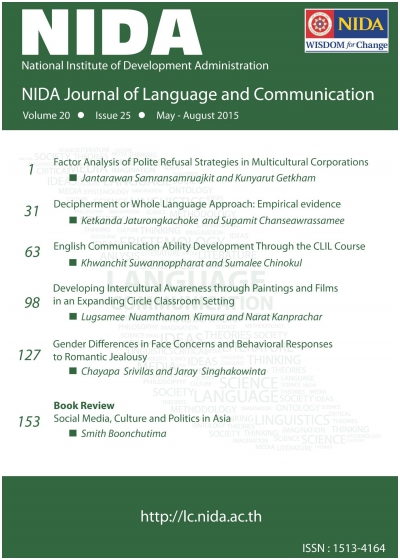Decipherment or Whole Language Approach: Empirical evidence
Keywords:
reading, decipherment, whole language, Thai graduate studentsAbstract
With the low reading rate of 7 lines/Thai person/year exacerbated by the current lingua franca status of the English language in the educational realm, labor market, and AEC (ASEAN Economic Community) era, numerous academic institutions are striving every way possible to encourage their students to achieve a higher degree of English proficiency. In this descriptive article, the two instructional approaches—―decipherment‖ and ―whole language‖—of an academic reading course at a graduate school in Thailand are explored. Garnered from the triangular sources of data—questionnaires, student evaluation forms, and student performances—the findings reveal that most students prefer a combination of both pedagogical approaches, ensued by the ―whole language‖ only. A significant suggestion is that this higher-education institute should provide all newcomers with a pre-test. As global villagers, the subjects in this study proposed that it be better for the school to provide English in a more sensible way, e.g. writing as required by the manpower market; reading for TOEIC (Test of English in Communication); and English for job employment, promotion, and success.Downloads
How to Cite
Issue
Section
License
By submitting a manuscript, the author transfers the copyright for the article to School of Language and Communication, National Institute of Development Administration (NIDA), if and when the manuscript is accepted for publication. Though the journal is an open-access, reproduction of any material published in NIDA Journal of Language and Communication for non-personal and/or commercial purpose requires a written permission from School of Language and Communication, National Institute of Development Administration (NIDA).






